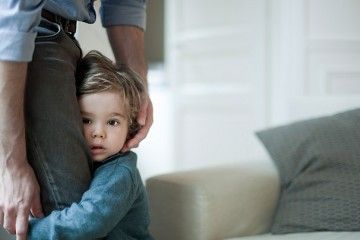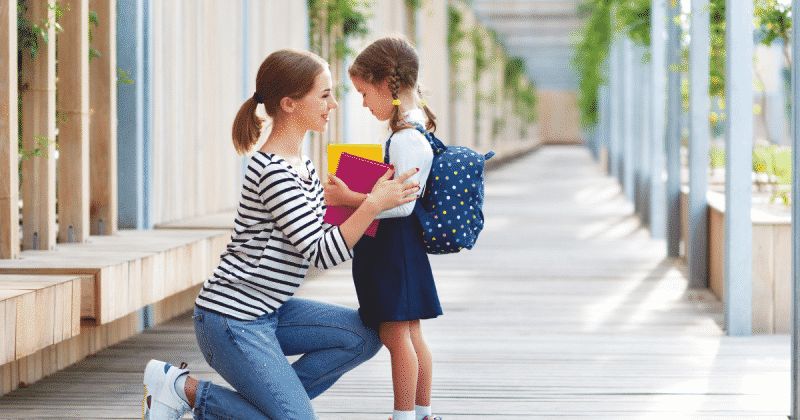
Source: https://www.pinterest.ph/pin/61783826107767289/?lp=true
Children laughing, moving, learning and crying, these are all part of preschool chorus. Separation Anxiety is a normal stage of development for schooling children. It is natural for your toddler to feel anxious when you part ways. Separation Anxiety is something we adults experience as well. (Think relocation to a new job or environment far from family and friends). With patience and understanding, this feeling fades as your child gets older.Children laughing, moving, learning and crying, these are all part of preschool chorus. Separation Anxiety is a normal stage of development for schooling children. It is natural for your toddler to feel anxious when you part ways. Separation Anxiety is something we adults experience as well. (Think relocation to a new job or environment far from family and friends). With patience and understanding, this feeling fades as your child gets older.
Here are some tips to make your child more comfortable in dealing with changes in his or her environment.
#1: TALK ABOUT PRESCHOOL IN A POSITIVE MANNER
Highlight that school is something that they will miss when there are no classes. Your child will meet new teachers and friends. They will also have an opportunity to play with different toys in ways they are not yet accustomed to. Remind your child that Preschool is one long play time necessary and have them imagine about the books they will read, the myriad of songs they will sing and dance to and the games they will play.
#2: ARRIVE EARLIER THAN OTHERS
Being early allows your children to “warm up” to the new environment and new faces. We recommend:
a. Coming in 20 minutes before classes start to orient your child with his or her new setting, and explain that you will be back to pick them up.
b. When I taught a toddler class (ages 18 months to 2.5 years old), the ones who adjusted quickly had ample time to play in the common playground and acquaint themselves with their classroom (Where the bag cubbies, Montessori toys, etc.)
Bringing your child to school earlier than others will allow you to explain that they are at school and you will be back. Also, it will give his (or her) teacher a chance to bond with your child and give them their undivided attention.
#3: CREATE A PARTNERSHIP WITH THE TEACHER
Your child’s teacher wants the best for your child. Create a healthy partnership by asking the teacher feedback on how your child behaved after you left. You need to know the type of transition your child goes through when you are gone in order to make them more comfortable. You may also ask for permission in order to accompany your child during his or her first activity in school.
#4: FIND SOMETHING OF INTEREST AT THE SCHOOL
Give your child a book to browse, a turtle / fish to observe, or a toy to manipulate before you leave. Do not give the impression that you will stay for the entire school hours. Simply find a window of time to exit after telling your child that you are leaving but will be back later. When in doubt, seek help from your child’s teacher.
Once again, Separation Anxiety in preschool is a common emotion that most children and adults experience! Clear communication, setting expectations and positive reassurance are what we all need (children and adults) to embrace change.

Teacher Anna Agoncillo
Anna Agoncillo is a Registered Psychometrician and a graduate of Cardiff Metropolitan University, United Kingdom. Earning a bachelor’s degree with honors in Psychological Studies, lead her to a career of writing and teaching. She is also the author of the new book entitled Psychology of Love, Money, & Life.
Let’s keep in touch!
Enrollment is All Year Round!


